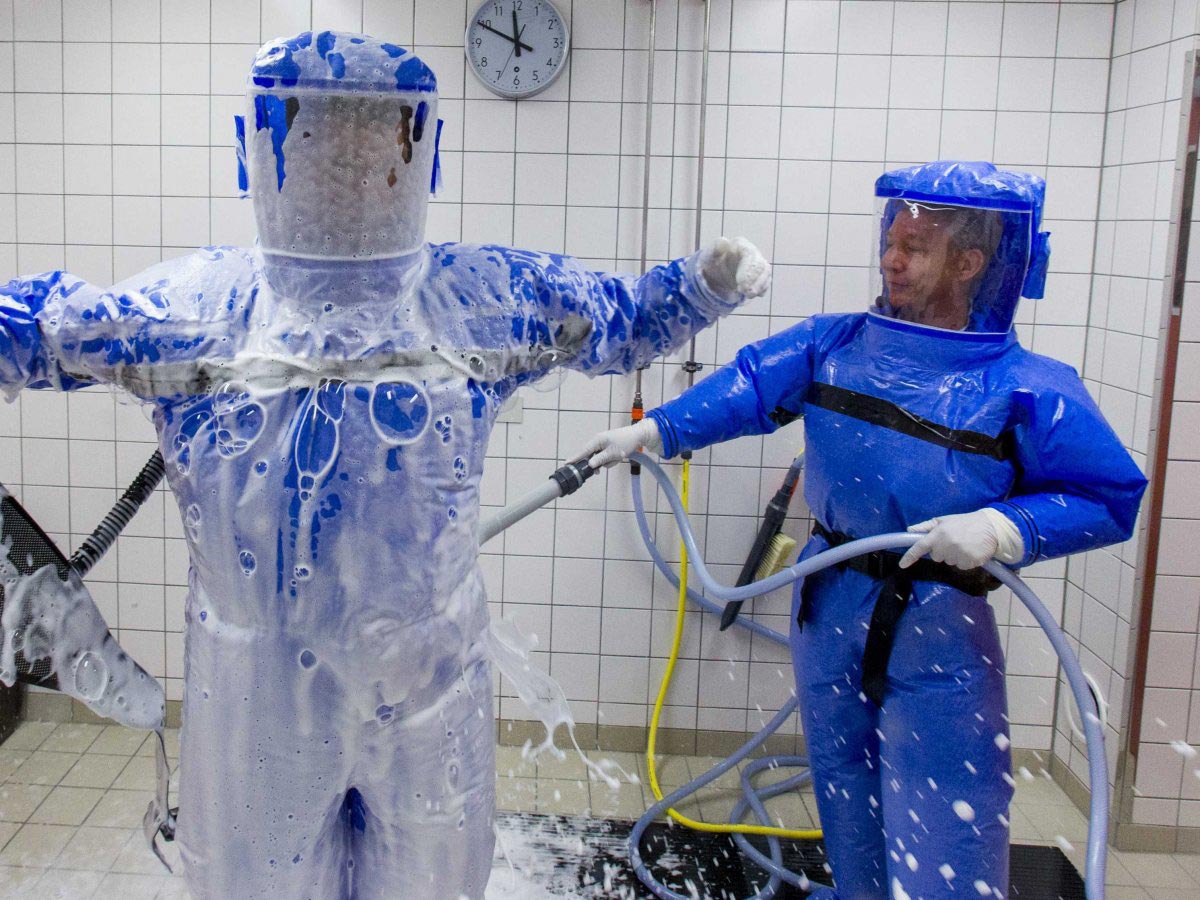The World Health Organisation, WHO on Friday, May 8, 2015 issued an interim advice on the possibility of the dreaded Ebola Virus Disease being transmitted via sexual activities.
The apex health organization had directed all Ebola survivors and their sexual partners to receive counselling to guard against possible transmission of the disease.
However, a part of the statement indicated that the sexual transmission of the Ebola Virus was yet to be proven.
The statement said, “The sexual transmission of the Ebola Virus from males to females is a strong possibility, but has not yet been proven; less probable, but theoretically possible.
“Studies have shown that Ebola virus can be isolated from semen up to 82 days after symptom onset.
“A recent case investigation identified genetic material (RNA) from the virus by nucleic acid amplification tests (such as RT-PCR) 199 days after symptom onset.
“This is well beyond the period of virus detecting ability in the blood of survivors and long after recovery from illness.
“The detection of virus genetic material many months after symptom onset is assumed to reflect the continuing, or at least very recent, presence of live and potentially transmissible Ebola virus.
“More surveillance data and research are needed on the risks of sexual transmission and particularly on the prevalence of viable and transmissible virus in semen over time, WHO said.
WHO recommends that, in the interim, all Ebola survivors and their sexual partners should receive counselling.
It added that this is to ensure safe sexual practices until their semen has twice tested negative; and survivors should be provided with condoms.
“Ebola survivors and their sexual partners should either abstain from all types of sex or observe safe sex through correct and consistent condom use until their semen has twice tested negative.
“Having tested negative, survivors can safely resume normal sexual practices without fear of Ebola virus transmission,’’ the statement added.
According to WHO, male Ebola survivors should be offered semen testing at three months after onset of disease.
It said that for those who tested positive, semen testing should be every month thereafter until their semen tests negative for virus twice by RT-PCR, with an interval of one week between tests.
“If an Ebola survivor’s semen has not been tested, he should continue to practice safe sex for at least six months after the onset of symptoms.
“This interval may be adjusted as additional information becomes available on the prevalence of Ebola virus in the semen of survivors over time, it added.
The health organization further explained that until such time when their semen has twice tested negative for Ebola, survivors should practice good hand washing with soap and water and other personal hygiene.
WHO explained, “This should be after any physical contact with semen, including after masturbation; used condoms should be handled and disposed of safely, so as to prevent contact with seminal fluids.
It said that Ebola virus RNA had also been detected by RT-PCR in vaginal fluid from one woman 33 days after symptom onset.
“Live virus has never been isolated from vaginal fluids.
“With such limited data, it is not known for how long virus typically persists in vaginal fluids, or whether it can be sexually transmitted from females to males.”
The organization further called on people to avoid stigmatization of all survivors, their partners and families.







